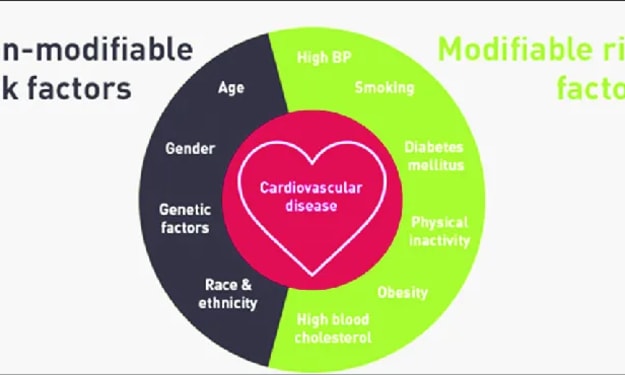Exercise in Cardiovascular Health
Does exercise improve the health of your heart?

Exercise plays a fundamental and multifaceted role in maintaining cardiovascular health and reducing the risk of heart disease. Regular physical activity encompasses a wide range of beneficial effects on the heart, blood vessels, and overall cardiovascular system, contributing significantly to longevity and overall well-being.
Improving Heart Function
Exercise serves as a powerful tool for strengthening the heart muscle, enhancing its ability to pump blood efficiently throughout the body. Through regular aerobic activities like brisk walking, running, cycling, or swimming, individuals can increase their cardiac output, improve myocardial oxygen supply, and lower resting heart rate. These adaptations not only decrease the workload on the heart but also reduce the risk of cardiovascular events such as heart attacks and strokes.
Lowering Blood Pressure
Physical activity is instrumental in regulating blood pressure by promoting vasodilation, reducing arterial stiffness, and enhancing endothelial function. Regular exercise leads to lower systolic and diastolic blood pressure readings, thereby reducing the risk of hypertension and its associated complications, such as heart failure and kidney disease. The cumulative effect of these changes supports healthier blood flow dynamics throughout the body.
Improving Lipid Profile
Exercise contributes to maintaining a favorable lipid profile by increasing levels of high-density lipoprotein (HDL) cholesterol, often referred to as “good” cholesterol. Simultaneously, it reduces levels of low-density lipoprotein (LDL) cholesterol, known as “bad” cholesterol. These lipid profile improvements are crucial in preventing the buildup of plaque in the arteries, thereby reducing the risk of atherosclerosis and coronary artery disease.
Enhancing Insulin Sensitivity
Regular physical activity enhances insulin sensitivity and glucose metabolism, playing a critical role in reducing the risk of type 2 diabetes and its associated cardiovascular complications. Exercise promotes glucose uptake by skeletal muscles, enhances glycogen storage, and reduces visceral fat accumulation. These metabolic improvements help mitigate the adverse effects of insulin resistance on cardiovascular health, promoting better overall glucose regulation.
Promoting Weight Management
Exercise is a cornerstone of achieving and maintaining a healthy weight. Physical activity helps individuals burn calories, increase metabolic rate, and preserve lean muscle mass. These effects not only facilitate weight loss but also help prevent obesity-related cardiovascular risk factors such as dyslipidemia, hypertension, and chronic inflammation. Maintaining a healthy weight through regular exercise is crucial for overall cardiovascular health and longevity.
Reducing Inflammation and Oxidative Stress
Exercise exerts profound anti-inflammatory and antioxidant effects on the body, thereby reducing systemic inflammation and oxidative stress. Chronic inflammation and oxidative stress are significant contributors to the development of atherosclerosis and other cardiovascular diseases. Physical activity modulates the production of cytokines such as interleukin-6 (IL-6) and tumor necrosis factor-alpha (TNF-α), and enhances antioxidant defense mechanisms. These mechanisms protect against endothelial dysfunction and vascular damage, promoting healthier blood vessel function.
Improving Mental Health and Quality of Life
Beyond its physical benefits, regular exercise has profound positive effects on mental health and overall quality of life. Physical activity reduces stress, anxiety, and depression, which are associated with an increased risk of cardiovascular disease. Exercise promotes better sleep quality, enhances cognitive function, and boosts mood, contributing to holistic cardiovascular health and well-being.
Reducing Risk of Blood Clots
Exercise plays a crucial role in reducing the risk of blood clot formation by promoting healthy blood flow and circulation. Physical activity reduces platelet aggregation, improves fibrinolysis (the breakdown of blood clots), and prevents the formation of arterial and venous thrombi. These effects significantly lower the risk of serious cardiovascular events such as heart attacks, strokes, and venous thromboembolism.
Incorporating regular exercise into daily life is essential for maintaining optimal cardiovascular health and reducing the risk of heart disease. The American Heart Association recommends at least 150 minutes of moderate-intensity aerobic exercise or 75 minutes of vigorous-intensity aerobic exercise per week, combined with muscle-strengthening activities on two or more days per week. However, any amount of physical activity is beneficial, and individuals should find activities they enjoy and can sustain in the long term to promote heart health and overall well-being.
In summary, exercise serves as a comprehensive and integral approach to maintaining cardiovascular health. It impacts heart function, blood pressure regulation, lipid profile maintenance, insulin sensitivity, weight management, inflammation reduction, oxidative stress mitigation, mental health improvement, and blood clot risk reduction. By engaging in regular physical activity, individuals can significantly enhance their cardiovascular well-being, reduce the risk of heart disease, and enjoy a healthier and more fulfilling life.
About the Creator
Enjoyed the story? Support the Creator.
Subscribe for free to receive all their stories in your feed. You could also pledge your support or give them a one-off tip, letting them know you appreciate their work.





Comments (1)
Great reading.